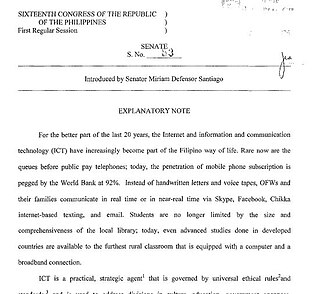
Pornography has existed since the origins of the United States, and has become more readily accessible in the 21st century. Advanced by technological development, it has gone from a hard-to-find "back alley" item, beginning in 1969 with Blue Movie by Andy Warhol, the Golden Age of Porn (1969–1984) and home video, to being more available in the country and later, starting in the 1990s, readily accessible to nearly anyone with a computer or other device connected to the Internet. The U.S. has no current plans to block explicit content from children and adolescents, as many other countries have planned or proceeded to do.

Pornography laws by region vary throughout the world. The production and distribution of pornographic films are both activities that are legal in some but not all countries, as long as the pornography features performers above a certain age, usually 18 years. Further restrictions are often placed on such material.
Rape pornography is a subgenre of pornography involving the description or depiction of rape. Such pornography either involves simulated rape, wherein sexually consenting adults feign rape, or it involves actual rape. Victims of actual rape may be coerced to feign consent such that the pornography produced deceptively appears as simulated rape or non-rape pornography. The depiction of rape in non-pornographic media is not considered rape pornography. Simulated scenes of rape and other forms of sexual violence have appeared in mainstream cinema, including rape and revenge films, almost since its advent.

The PROTECT Act of 2003 is a United States law with the stated intent of preventing child abuse as well as investigating and prosecuting violent crimes against children. "PROTECT" is a backronym which stands for "Prosecutorial Remedies and Other Tools to End the Exploitation of Children Today".

The Criminal Justice and Public Order Act 1994 is an Act of the Parliament of the United Kingdom. It introduced a number of changes to the law, most notably in the restriction and reduction of existing rights, clamping down on unlicensed rave parties, and greater penalties for certain "anti-social" behaviours. The Bill was introduced by Michael Howard, Home Secretary of Prime Minister John Major's Conservative government, and attracted widespread opposition.
Censorship in South Korea is implemented by various laws that were included in the constitution as well as acts passed by the National Assembly over the decades since 1948. These include the National Security Act, whereby the government may limit the expression of ideas that it perceives "praise or incite the activities of anti-state individuals or groups". Censorship was particularly severe during the country's authoritarian era, with freedom of expression being non-existent, which lasted from 1948 to 1993.
Human rights in Indonesia are defined by the 1945 Constitution and the laws under it; several rights are guaranteed especially as a result of the constitutional amendments following the Reform era. The Ministry of Law and Human Rights deals with human rights issues in the cabinet, and the National Commission on Human Rights, established in Suharto's New Order administration in 1993, is the country's national human rights institution.
Anti-terrorism legislation are laws with the purpose of fighting terrorism. They usually, if not always, follow specific bombings or assassinations. Anti-terrorism legislation usually includes specific amendments allowing the state to bypass its own legislation when fighting terrorism-related crimes, under alleged grounds of necessity.
Law of Indonesia is based on a civil law system, intermixed with local customary law and Dutch law. Before the Dutch presence and colonization began in the sixteenth century, indigenous kingdoms ruled the archipelago independently with their own custom laws, known as adat. Foreign influences from India, China and the Middle East have not only affected culture, but also the customary adat laws. The people of Aceh in Sumatra, for instance, observe their own sharia law, while ethnic groups like the Toraja in Sulawesi still follow their animistic customary law.

Lesbian, gay, bisexual, and transgender (LGBT) people in Indonesia face legal challenges and prejudices not experienced by non-LGBT residents. Traditional social norms disapprove of homosexuality and gender transitioning, which impacts public policy. Indonesian same-sex couples and households headed by same-sex couples are not eligible for any of the legal protections available to opposite-sex married couples. Most parts of Indonesia do not have a sodomy law, and the country does not currently prohibit non-commercial, private and consensual sexual activity between members of the same-sex, yet there is no specific Indonesian law that protects the LGBT community against discrimination and hate crimes. In Aceh, homosexuality is illegal under Islamic Sharia law and it is punishable by flogging or imprisonment. Indonesia does not recognize same-sex marriage.
Legal frameworks around fictional pornography depicting minors vary depending on country and nature of the material involved. Laws against production, distribution and consumption of child pornography generally separate images into three categories: real, pseudo, and virtual. Pseudo-photographic child pornography is produced by digitally manipulating non-sexual images of real minors to make pornographic material. Virtual child pornography depicts purely fictional characters. "Fictional pornography depicting minors", as covered in this article, includes these latter two categories, whose legalities vary by jurisdiction, and often differ with each other and with the legality of real child pornography.
Section 163.1 of the Criminal Code of Canada forbids the production, distribution, and possession of child pornography, which are punishable by a maximum of ten or fourteen years of imprisonment depending on the offense. Portions of the law concerning one-year mandatory minimums for possession and making of child pornography have since been struck down as unconstitutional.
Feminist views on pornography range from total condemnation of the medium as an inherent form of violence against women to an embracing of some forms as a medium of feminist expression. This debate reflects larger concerns surrounding feminist views on sexuality, and is closely related to those on prostitution, BDSM, and other issues. Pornography has been one of the most divisive issues in feminism, particularly in Anglophone (English-speaking) countries. This division was exemplified in the feminist sex wars of the 1980s, which pitted anti-pornography activists against pro-pornography ones.
Child pornography is erotic material that depicts persons under the age of 18. The precise characteristics of what constitutes child pornography varies by criminal jurisdiction.

The Cybercrime Prevention Act of 2012, officially recorded as Republic Act No. 10175, is a law in the Philippines that was approved on September 12, 2012. It aims to address legal issues concerning online interactions and the Internet in the Philippines. Among the cybercrime offenses included in the bill are cybersquatting, cybersex, child pornography, identity theft, illegal access to data and libel.

The Magna Carta for Philippine Internet Freedom is an internet law bill filed in the Congress of the Philippines. The bill contains provisions promoting civil and political rights and Constitutional guarantees for Philippine internet users, such as freedom of expression, as well as provisions on information and communications technology (ICT) policy, ICT4D, internet governance, e-governance, cybersecurity, cyberwarfare, cyberterrorism, and cybercrime.

Pornography in Asia is pornography created in Asia, watched in Asia, or consumed or displayed in other parts of the world as one or more genres of Asian porn.
The Law on Sexual Violence Crimes is a law aimed to tackle sexual violence in Indonesia. The bill of the law was proposed on January 26, 2016. The law focuses on the prevention of sexual violence, more rights for victims and to acknowledge marital rape.
Law on State Capital is an omnibus law to relocate capital of Indonesia from Jakarta to Nusantara at East Kalimantan as new capital of Indonesia. The omnibus bill of the law was passed into law on 18 January 2022, and finally commenced on 15 February 2022.
The Criminal Code Act 2023, or the 2023 Indonesian Criminal Code, is the new Indonesian criminal code replacing the Dutch-era code. The law is the most expensive and longest ever made in Indonesia, as it has been more than 50 years in the making since its first formulation.







